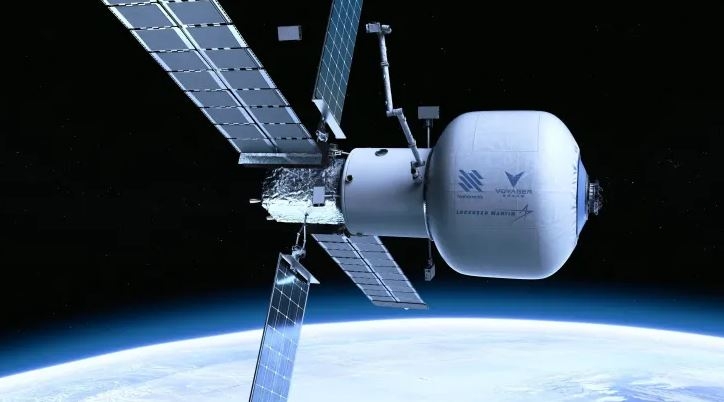According to statements made by Voyager Space Holdings and Lockheed Martin to CNBC on Monday, the hotel chain Hilton has agreed to build astronaut amenities for the private space station Starlab, which is presently being developed by Voyager Space Holdings and Lockheed Martin.
In addition to the development of hospitality rooms and sleeping quarters, Hilton will collaborate with Voyager to investigate potential avenues for the commercialization of the space station and the astronauts’ experiences while they are stationed there.
In an interview with CNBC during the 2022 International Astronautical Congress, the Chairman and Chief Executive Officer of Voyager, Dylan Taylor, said that he is thrilled by the “unique viewpoint” that Hilton offers to the project since “they’re not space folks.”
Taylor said that he saw it as having “a bit of an edge” and compared it to “almost as if looking at it with a new set of eyes and saying: ‘How can we recreate this experience.'” Although both the space industry and the hospitality industry have been thinking about the possibility of a hotel in orbit for a long time, this alliance is the first of its type among the private stations that are now under construction.
The Chief Executive Officer of Hilton, Christopher Nassetta, was quoted as saying in a statement that “for decades, discoveries in space have been positively impacting life on Earth.”
The free-flying Starlab space station is being developed by Voyager and its operational firm, Nanoracks, in collaboration with Lockheed Martin. The firms have the ambitious goal of having the first Starlab fully functional in low Earth orbit by the year 2027.
As NASA gets ready to decommission the International Space Station (ISS) in 2030, four new space stations are now being constructed by private businesses in the United States with funding and assistance from NASA contracts. To assist in the development of Starlab as part of the NASA Commercial LEO Destinations initiative, Nanoracks was given the contract for the biggest individual portion of the programme, which was valued at 160 million dollars.
Taylor stated that the partnership with Hilton was the result of a relationship that began with the “cookies in space” experiment in early 2020. This experiment was the first attempt at baking food in space and consisted of astronauts on the ISS baking DoubleTree chocolate chip cookies as part of the experiment.
Taylor said that Voyager believes there are significant business prospects for Starlab in the areas of human spaceflight as well as scientific and research activities.
The third quarter of 2023 is when Voyager anticipates production of the first Starlab module to get underway. Taylor estimated that it would take the group “approximately a year to bend metal.”
The first Starlab will be constructed to have as much adaptability as is humanly feasible, with the design being able to accommodate the connection of three separate modules. According to Taylor, the longer-term objective of the firm is to grow to “many Starlabs that are purpose built” for the various requirements of the industry.
The corporation’s portfolio now consists of nine enterprises that are related to space infrastructure and technology. Within the next year or two, Voyager intends to investigate the possibility of launching an initial public offering.

